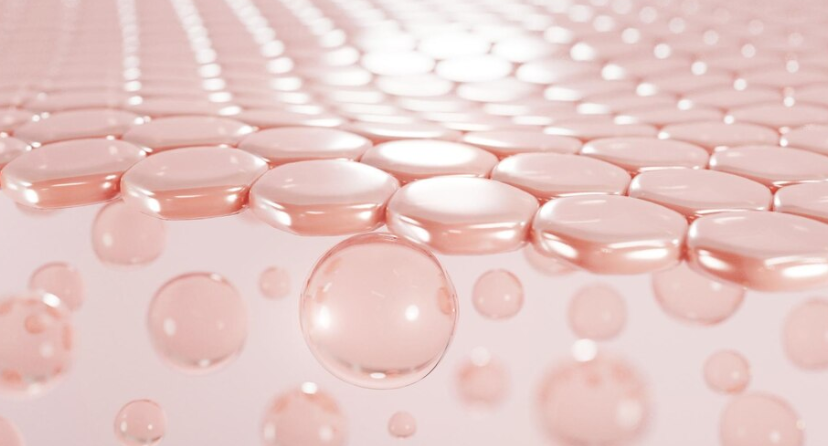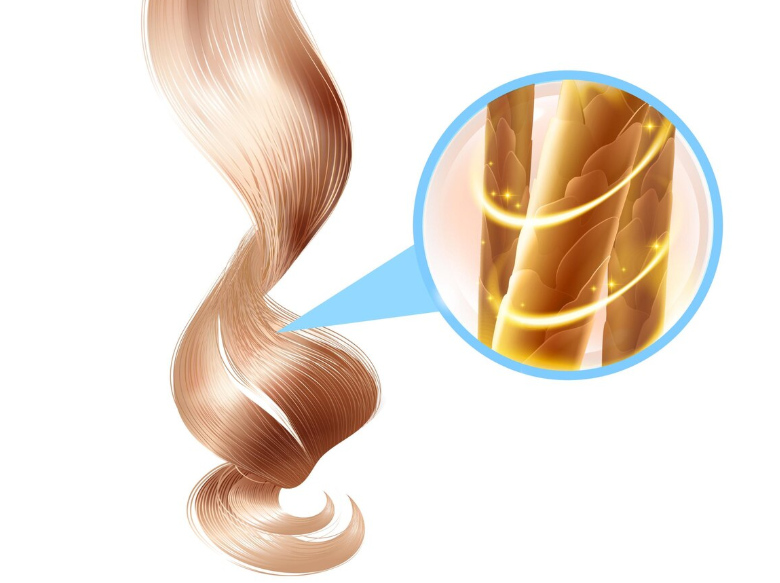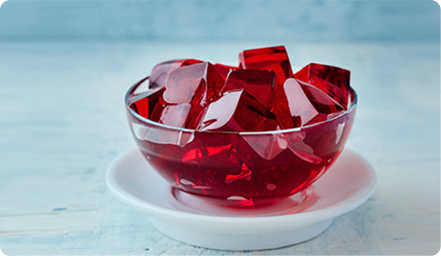-
July, 26,2025
Understanding the Role of Bloom Strength in Soft Gelatin Capsules
-
July, 25,2025
Bloom Strength and Its Impact on Hard Gelatin Capsules
-
July, 21,2025
How Gelatin Is Revolutionizing Pet Food: A Healthier Option for Dogs
-
June, 22,2025
Collagen as a Trusted Ingredient: Meeting Global Demand with Reliable Supply
The Uses of Collagen: A Closer Look at Collagen Types and Their Benefits
Collagen is no longer just a buzzword in the beauty world—it's now a cornerstone of wellness, sports recovery, and functional nutrition. As the most abundant protein in the human body, collagen provides structural integrity to skin, bones, joints, tendons, and more. But as natural collagen levels decline with age, supplementation has become increasingly essential.
This article offers a closer look at collagen peptides, their natural sources, the differences between collagen types, and how choosing the right format can benefit your product line and your customers.

What Is Collagen and Why It Matters
Collagen is a fibrous protein that acts as the body’s internal scaffolding. It holds together our skin, muscles, cartilage, and connective tissues, accounting for nearly 30% of total protein mass in the body. As we age, our body’s natural collagen production drops—leading to wrinkles, joint stiffness, and slower recovery from injury.
That’s where collagen peptides step in. These bioavailable peptides are short chains of amino acids derived from natural collagen sources, typically through enzymatic hydrolysis. Unlike native collagen, peptides dissolve easily in cold liquids and are absorbed quickly in the gut—making them ideal for oral supplements.
At FNP Gelatin, we believe in nature-powered wellness. Our collagen peptides are obtained from nature, using traceable, high-quality raw materials from bovine hide and other sources.
Where Do Collagen Peptides Come From?
The raw material for collagen supplements is typically sourced from animal by-products. These include:
- Bovine Collagen (cow hide or bones) – Rich in Type I and III collagen. Ideal for skin, bones, and muscle repair.
- Marine Collagen (fish skin or scales) – Known for its fine molecular weight and superior bioavailability. Preferred in beauty supplements.
- Porcine Collagen (pig skin) – A cost-effective option, though less suitable for certain religious dietary preferences.
- Chicken Collagen – High in Type II collagen, commonly used for joint health applications.
Each source provides a different collagen profile. FNP Gelatin, a collagen peptides manufacturer, offers high-purity bovine collagen peptides with halal, kosher, and BSE-free certifications to meet global standards.
Understanding Collagen Types: I, II, and III
Type I Collagen: Skin, Bone & Tendon Strength
Type I collagen accounts for over 90% of the body’s collagen. It’s densely packed and provides structure to skin, bones, tendons, and ligaments. It's most frequently used in supplements aimed at:
- Skin elasticity and hydration
- Bone density support
- Hair and nail strength
Type I collagen is commonly derived from bovine or marine sources.
Type II Collagen: Joint and Cartilage Support
Type II collagen is found in cartilage and connective tissues. It's essential for joint flexibility, making it especially valuable for:
- Elderly consumers with arthritis
- Athletes or physically active individuals
- Pet supplements focused on joint mobility
This type is often sourced from chicken sternum or bovine cartilage and is a key ingredient in joint care formulations.
Type III Collagen: Organ and Skin Elasticity
Type III collagen is typically found alongside Type I, particularly in skin, organs, and blood vessels. It promotes tissue elasticity and is vital for:
- Wound healing
- Organ support
- Youthful skin appearance
It’s commonly extracted from bovine sources and is especially valuable in beauty-from-within products targeting women.
Benefits of Collagen Peptides Across Applications
Whether you’re formulating for cosmetics, nutraceuticals, or clinical nutrition, collagen peptides offer multi-system support:
- Skin & Hair: Improves elasticity, hydration, and reduces fine lines
- Joints & Cartilage: Eases stiffness and supports cartilage regeneration
- Bone Health: Enhances calcium absorption and bone matrix density
- Gut Health: Strengthens intestinal lining and soothes inflammation
- Muscle Recovery: Supports lean body mass and post-exercise recovery
- Cardiovascular Health: Maintains elasticity of blood vessels
These versatile benefits are why collagen is being used not only in pills and powders, but also in gummies, drinks, protein bars, and pet supplements.

Choosing the Right Collagen Format
Selecting the right type and format of collagen depends on your product category and target demographic:
|
Product Type |
Suggested Collagen Format |
|
Beauty drink |
Marine collagen peptides |
|
Joint supplement |
Type II chicken or bovine |
|
Sports recovery bar |
Bovine collagen peptides |
|
Pet food/treats |
Hydrolyzed bovine or gelatin |
|
Clinical formula |
Multi-type collagen blend |
Working with an experienced collagen peptide powder manufacturer helps ensure that your chosen ingredient meets not only technical performance, but also market demand and regulatory standards.
What to Avoid When Taking Collagen
To optimize results, educate your customers on these common collagen usage mistakes:
- Taking collagen without vitamin C (which aids in collagen synthesis)
- Using products with artificial sweeteners or high sugar content
- Combining collagen with caffeine or alcohol, which may impair absorption
- Choosing non-hydrolyzed collagen for instant drinks (poor solubility)
As a professional edible gelatin manufacturer, FNP Gelatin provides support and technical guidance to help you avoid these pitfalls and maximize product efficacy.
The Growing Role of Collagen in Functional Nutrition
As more consumers seek natural, functional solutions to aging, wellness, and mobility, collagen has found a firm place in:
- Women’s beauty and wellness supplements
- Men’s muscle recovery and joint health products
- Senior health and bone strength formulas
- Youth-focused protein blends
- Functional snacks and ready-to-drink solutions
At FNP Gelatin, we collaborate with global brands to create clean-label, high-performance collagen products using sustainably sourced peptides and cutting-edge hydrolysis techniques.
FAQ – Common Questions About Collagen Peptides
Q1: Where do collagen peptides come from?
Collagen peptides are obtained from natural animal sources like bovine, fish, chicken, and porcine, through a process called enzymatic hydrolysis.
Q2: What is Type 3 collagen derived from?
Type III collagen is most commonly sourced from bovine hide, often alongside Type I collagen.
Q3: What is the main function of collagen?
Collagen provides structural support to the skin, joints, bones, and connective tissues. It helps maintain elasticity, strength, and mobility.
Q4: What should I avoid when taking collagen?
Avoid mixing it with caffeine or alcohol and opt for collagen supplements that include vitamin C to aid absorption. Also, steer clear of sugar-loaded or heavily flavored products.
Final Thoughts: Collagen Is More Than Skin Deep
Collagen peptides offer broad health benefits backed by science—from smoother skin to stronger joints and bones. But not all collagen is created equal. The key to an effective product lies in choosing the right type, format, and manufacturer.
Whether you're launching a new functional food, expanding a supplement line, or improving an existing formula, FNP Gelatin is here to support your success as a trusted collagen peptides supplier. With decades of industry expertise and scalable production, we help you deliver quality, performance, and transparency—naturally.
Phone: +86-577-88105990
Mobile: +86-138 5886 1938
Official Website: www.fnp-gelatin.com
Email: sales@funingpu.com
Address: No. 1-10 Wenpu Road, Yacheng Town, Xiapu County, Ningde City, Fujian Province




